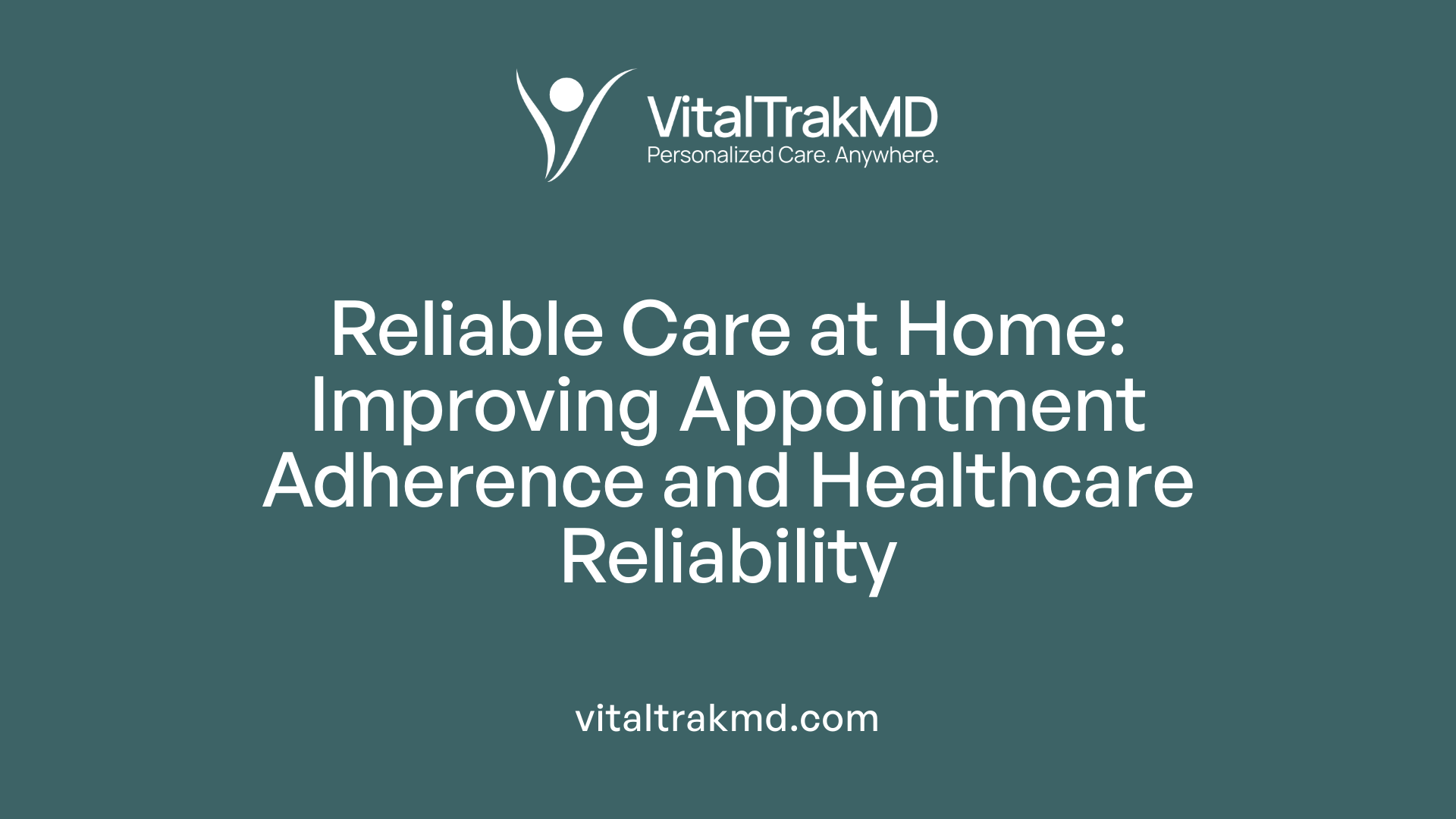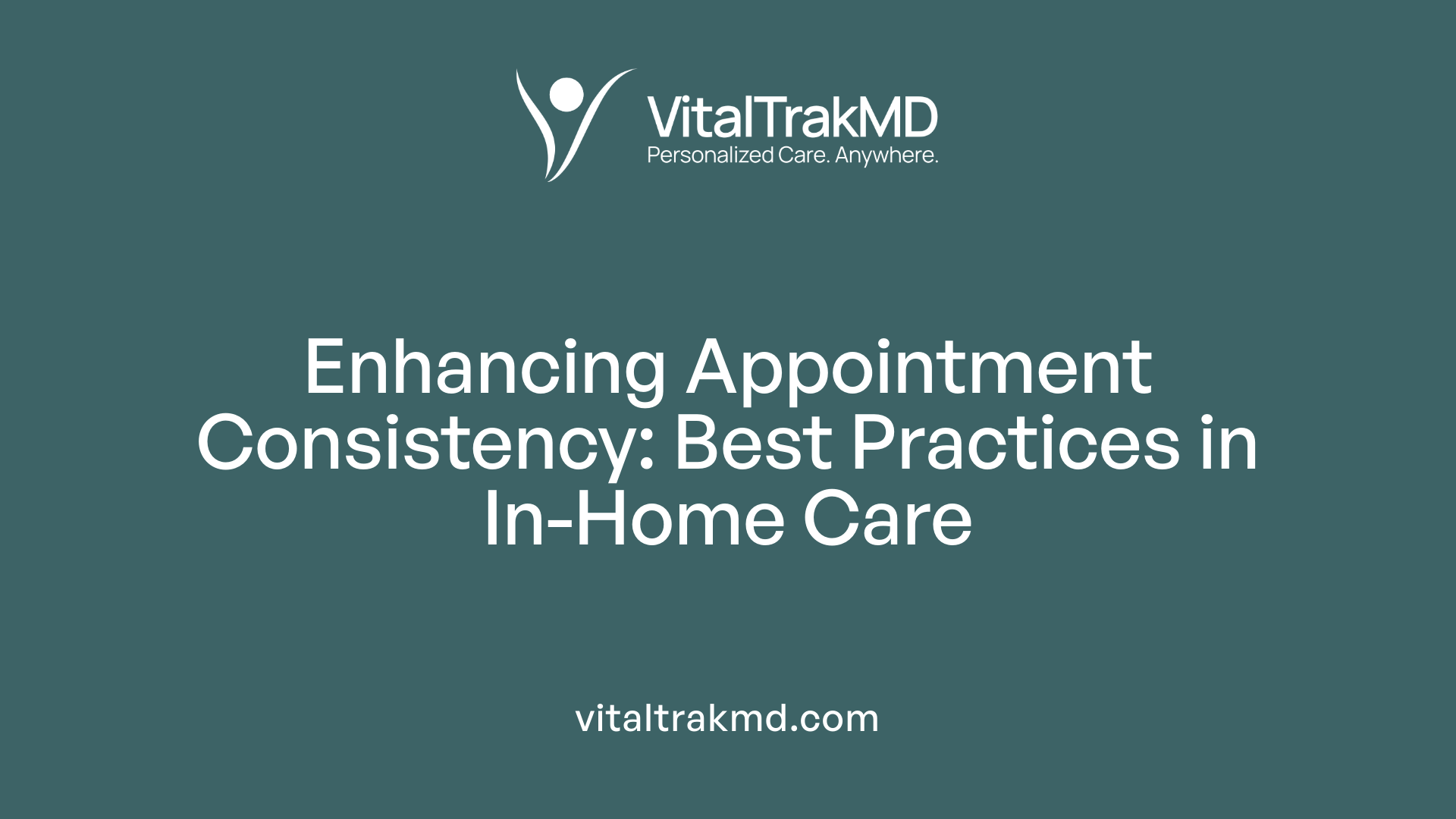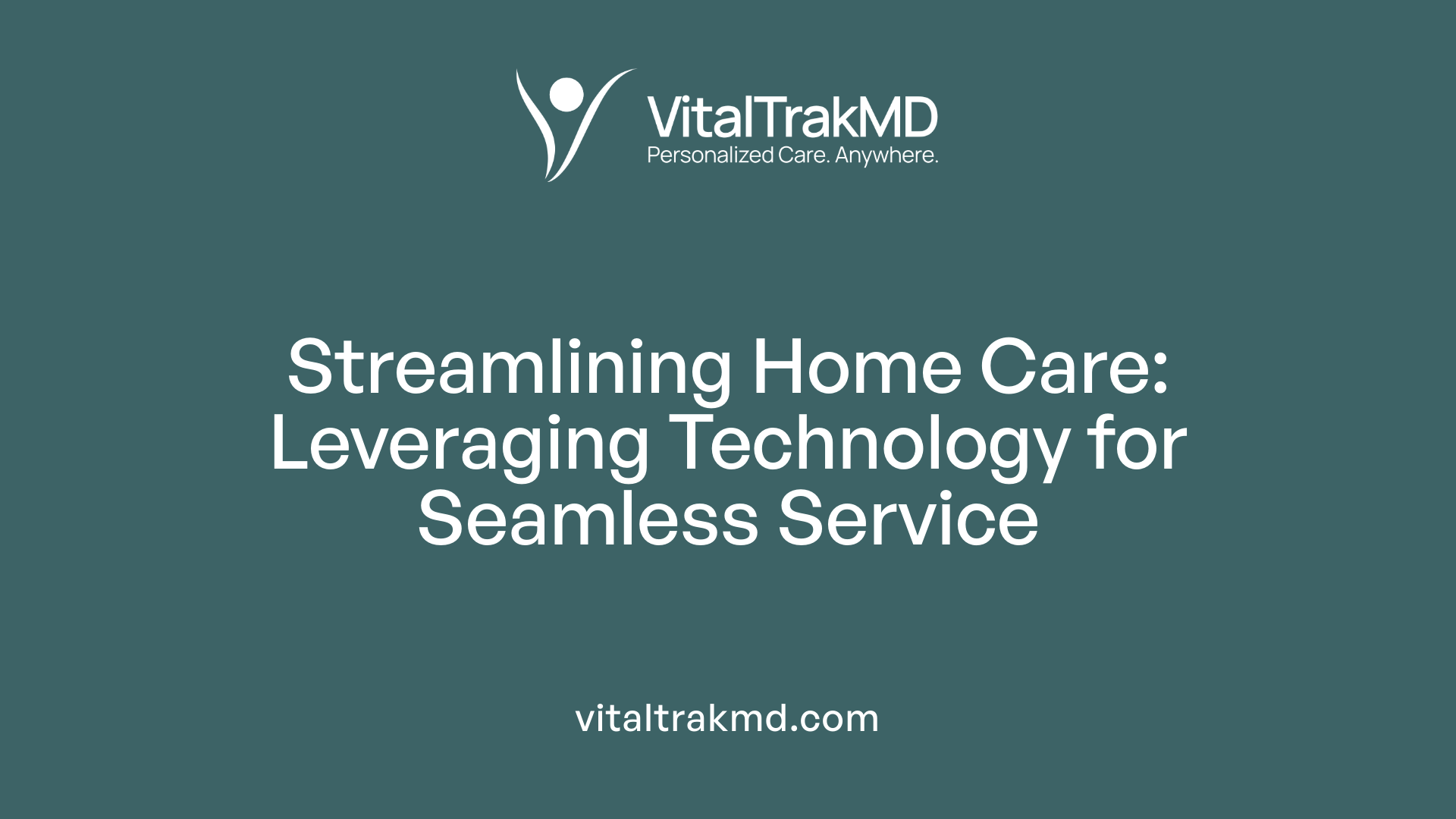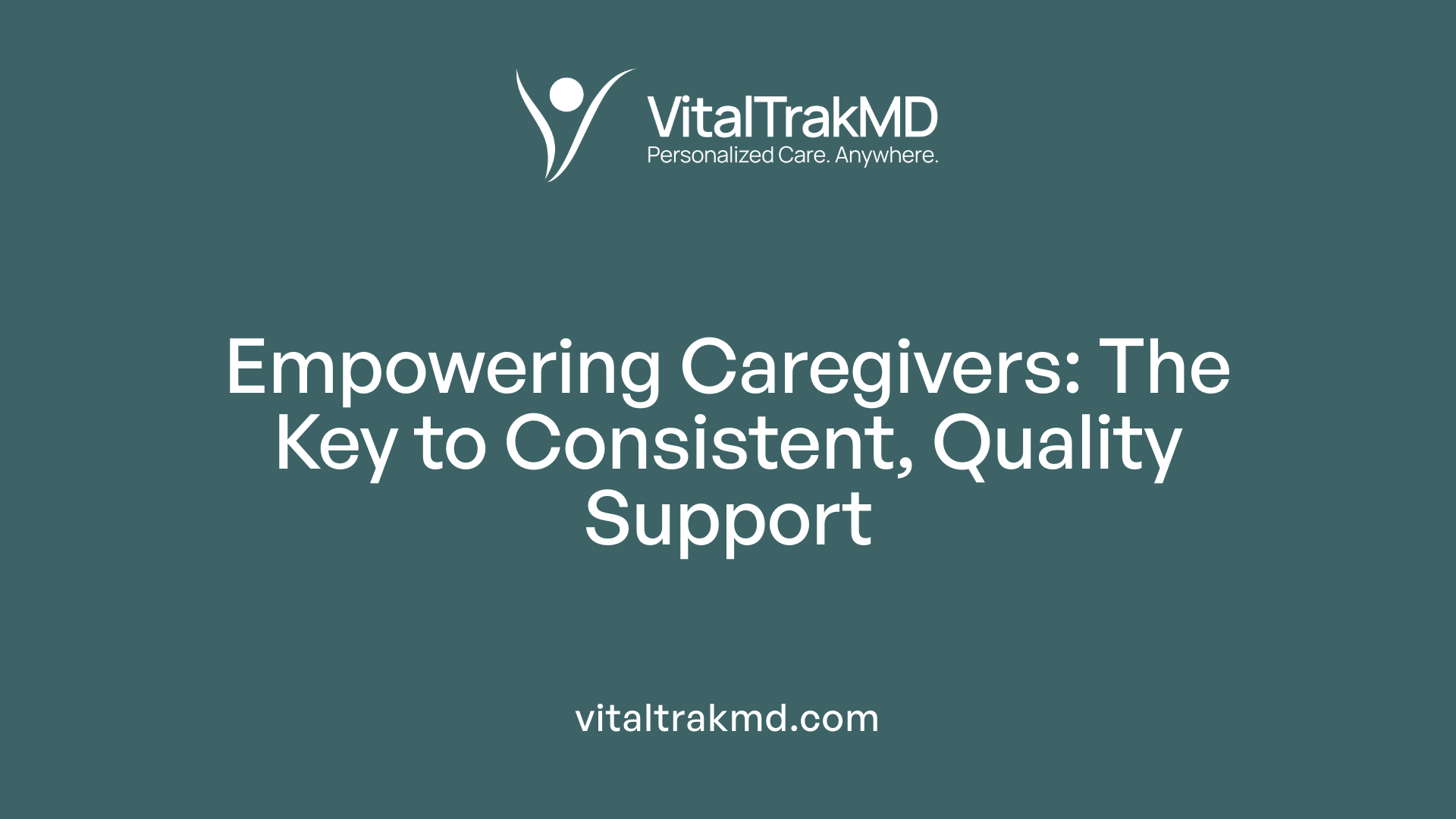How In-Home Care Improves Appointment Consistency for Seniors

The Critical Role of Routine and Personalized Care
Maintaining appointment consistency is vital for senior health management. In-home care offers a comprehensive solution by fostering routines, trust, and tailored support, which collectively enhance adherence to medical schedules. This article explores how personalized, continuous in-home care boosts appointment reliability, improves overall health outcomes, and contributes to a senior’s well-being.
The Multifaceted Benefits of Routine for Seniors' Well-Being
What are the benefits of consistent in-home care for senior health and well-being?
Establishing a steady routine through in-home care significantly enhances the overall well-being of seniors. When caregivers follow consistent schedules, seniors enjoy a sense of familiarity and security that is vital for emotional stability. Knowing what to expect each day reduces feelings of anxiety and confusion, especially for those experiencing memory impairments. This predictability provides clear anchors throughout the day, helping seniors navigate their environment with confidence.
Physical stability is also improved with a consistent routine. Regular wake and sleep cycles, meal times, and medication schedules help regulate the body's circadian rhythm, leading to higher quality sleep and better overall health. Scheduled activities and social interactions, facilitated by trusted caregivers, promote mental stimulation and prevent feelings of isolation. These social and cognitive engagements give seniors a sense of purpose, boosting their confidence and fostering independence.
Moreover, in-home care fosters personalized support that aligns with individual needs. Care plans include tailored routines, medication management, and enjoyable activities, all designed to meet the unique preferences of each senior. This customized approach helps monitor chronic health conditions closely, reduces the risk of hospital readmissions, and prevents potential health issues through early intervention.
Trust and rapport built over time with familiar caregivers also play a critical role. Consistent relationships reduce anxiety about receiving help from strangers, while improving communication and care coordination among family members and care teams. This trust ensures seniors feel cared for in a relaxed environment, which supports emotional health and sustains their independence.
Research shows that this continuity of care can lead to tangible health improvements. Seniors with consistent care providers are more likely to adhere to their medication regimens, experience fewer hospitalizations, and report higher satisfaction levels. Technologies like scheduling tools and ongoing caregiver training further ensure seamless, reliable care and ongoing quality improvements. By maintaining routine and stability, seniors can enjoy a higher quality of life in the comfort of their homes while aging gracefully and healthily.
How In-Home Care Enhances Appointment Adherence and Reliability

How does in-home care impact appointment adherence and scheduling reliability for seniors?
In-home care plays a vital role in helping seniors stick to their medical appointments and manage their healthcare schedules reliably. One of the main ways it achieves this is through consistent reminders and assistance with transportation to healthcare visits.
Many seniors face mobility challenges, transportation issues, or forgetfulness, which can make attending appointments difficult. In-home caregivers provide the necessary support, ensuring seniors don’t miss important check-ups or treatments. This personalized assistance helps address obstacles that might otherwise lead to missed or delayed appointments.
Supporting daily routines and health management is another critical factor. Caregivers help seniors organize their medication schedules, meal plans, and activity routines, making it easier to remember and prepare for upcoming appointments. They can also clarify care instructions, reducing confusion and ensuring seniors follow through.
Moreover, in-home care fosters better communication with healthcare providers. Caregivers can coordinate directly with medical teams, relay vital health information, and verify appointment details. This ongoing dialogue improves scheduling reliability and ensures seniors receive continuous, timely care.
Overall, by offering tailored support, transportation help, routine management, and improved communication, in-home care significantly boosts appointment adherence and ensures seniors’ healthcare needs are met consistently and effectively.
Strategies for Improving Appointment Consistency through In-Home Care

What strategies and best practices can be used to enhance appointment consistency through in-home care?
Achieving consistent appointment schedules is vital for providing reliable care to seniors. One effective approach is developing comprehensive care plans that clearly define goals, include detailed information about the patient’s needs, and are regularly updated. These plans help caregivers deliver tailored care and ensure all team members are aligned.
Leverage technology and scheduling tools to optimize appointment management. Advanced software systems can assign caregivers based on their skills, proximity to the patient, and availability. These tools reduce errors, prevent scheduling conflicts, and decrease cancellations. Real-time scheduling platforms also allow for quick adjustments when needed.
Automation plays a big role in maintaining appointment consistency. Automated reminders sent via phone or email minimize missed appointments and improve medication and appointment adherence. Patients can often self-schedule or reschedule appointments through user-friendly platforms, fostering greater independence and engagement.
Geographic and scheduling strategies enhance efficiency. Clustering appointments in the same area reduces travel time and enables caregivers to maintain multiple visits in a single route. Wave scheduling, where caregivers see patients in defined blocks, provides predictability while offering flexibility to address urgent needs.
Ongoing caregiver education and training are essential for delivering high-quality, consistent care. Well-trained caregivers are better at recognizing subtle health changes, building trust, and fostering communication. Maintaining long-term, stable caregiver-patient relationships further reinforces confidence and improves compliance.
Effective communication mechanisms—such as regular updates, direct messaging platforms, and continuous feedback loops—support coordination among caregivers and ensure continuity of care. Combining these strategies ensures seniors receive reliable, personalized services, leading to improved health outcomes and greater satisfaction.
The Power of Personalized, Continuous Care in Managing Appointments

How does personalized, continuous care encourage seniors to keep their medical and care appointments?
Personalized, continuous care builds a foundation of trust and engagement that motivates seniors to stay consistent with their medical routines. When care plans are tailored to individual needs, preferences, and evolving health statuses, seniors feel more involved and empowered. They are more likely to see the importance of regularly attending appointments because they understand how each visit relates to their overall well-being.
Care teams focus on setting clear goals and regularly assessing health progress. This ongoing communication helps seniors recognize the benefits of adherence and feel supported in their health journey. Real-time feedback through remote monitoring and telehealth services offers immediate insights into their condition. These tools enable early detection of potential problems, which encourages seniors to follow up and stay connected with their care providers.
Furthermore, adaptable care plans ensure that as seniors' needs change—whether due to chronic conditions or new health concerns—their appointments and interventions are adjusted accordingly. This flexibility makes appointments more relevant and effective, fostering continuous participation. Overall, personalized, continuous care enhances seniors’ confidence in managing their health, leading to better attendance at appointments and improved outcomes.
How does continuous care support early detection of health issues?
Regular in-home visits and remote monitoring techniques allow care teams to identify health problems early. Subtle signs of health deterioration, which might be overlooked otherwise, can be caught promptly. Early intervention can prevent complications and hospitalization, contributing to better health management.
How do adaptable care plans help seniors stay engaged?
Flexibility in care strategies ensures that the service remains aligned with seniors' current health status, preferences, and lifestyle changes. When care plans are regularly reviewed and adjusted based on ongoing assessments, seniors see ongoing relevance and benefit, reinforcing their commitment to maintaining regular appointments.
What is the impact of supportive technology on appointment adherence?
Technology such as automated scheduling, real-time alerts, and virtual check-ins reduce missed visits and late appointments. These tools promote reliability and consistency, which are crucial for ongoing health management in seniors.
| Aspect | Benefits | Additional Details |
|---|---|---|
| Trust and Engagement | Motivates appointment adherence | Builds confidence and a sense of partnership |
| Care Planning | Sets shared goals | Ensures relevance and adaptability |
| Remote Monitoring | Supports early detection | Facilitates prompt intervention |
| Evolving Needs | Ensures flexibility | Keeps care relevant and efficient |
In summary, personalized and continuous care models not only foster trust and motivation but also enable proactive health management. Through tailored plans, technology-enabled monitoring, and ongoing assessment, seniors are better supported in maintaining consistent medical appointments, contributing to healthier, more independent lives.
Technological Innovations Supporting Care Continuity and Scheduling

How does implementing and streamlining home care software improve efficiency and accuracy in care delivery?
Using advanced care management software has revolutionized the way in-home senior care is delivered. These digital tools streamline various aspects of caregiving, making it more precise and efficient.
One of the primary benefits is automation of scheduling. Caregivers’ shifts are planned more accurately, reducing missed visits and late arrivals. This automation helps ensure seniors receive timely assistance, which is vital for managing daily routines and health conditions.
Real-time monitoring features give caregivers and healthcare providers instant updates on appointments and patient status. If there are any delays or health concerns, prompt adjustments can be made, preventing complications.
Maintaining detailed electronic health records within these systems supports personalized care plans. Caregivers have quick access to vital information, medication schedules, and specific needs of each senior.
Enhanced communication platforms built into care software foster smooth collaboration between family members, caregivers, and healthcare professionals. This open line of dialogue helps address issues swiftly and adapt care plans accordingly.
Data analytics within these systems can also optimize caregiver deployment by considering factors such as location, skill set, and patient preferences. This targeted approach improves visit adherence and overall health outcomes.
In summary, streamlining home care software elevates the quality and consistency of care by reducing errors, facilitating communication, and ensuring that each senior’s unique needs are met accurately and promptly.
Training and Education: Ensuring Consistency in In-Home Care Quality

How does ongoing education and training for caregivers contribute to maintaining care consistency?
Ongoing education and training are vital for caregivers to provide reliable and high-quality support for seniors. When caregivers regularly update their skills through training sessions, they become familiar with current best practices, new healthcare technologies, and the latest health guidelines. This continuous learning allows them to better understand the diverse health needs of the seniors they serve and adapt care plans effectively.
A well-trained caregiver can accurately follow scheduled routines, manage medications properly, and recognize early signs of health issues, which reduces mistakes and omissions. It also promotes consistency in daily care activities, such as meal times, medication schedules, and socialization, all of which contribute to seniors' emotional security and physical stability.
Furthermore, ongoing professional development fosters improved communication and teamwork among caregivers. It boosts their confidence and morale, leading to better job satisfaction and lower turnover rates. A stable, experienced team builds trust with seniors, ensuring ongoing engagement and adherence to care routines.
Research supports that continuous training not only enhances care quality but also strengthens caregiver-client relationships, which are crucial for maintaining consistent, personalized care. Ultimately, by investing in caregiver education, home care agencies can ensure that seniors receive dependable, respectful, and holistic support that promotes their well-being and independence.
Fostering Trust and Continuity for Better Outcomes
In-home care that emphasizes personalized routines, technological integration, continuous training, and strong caregiver-client relationships significantly enhances appointment consistency for seniors. This comprehensive approach not only ensures better health management and reduced hospitalizations but also fosters emotional security, independence, and improved quality of life. As caregivers and healthcare systems continue to adopt these best practices, seniors can expect more reliable, attentive, and effective in-home support that respects their dignity and unique needs.
References
- The Power of Routine: Why Consistency Helps Seniors ...
- The Vital Role of In-Home Primary Care Visits
- Why Consistency and Caregiving Go Hand in Hand
- Why is Continuity of Care for In-Home Care so Vital?
- 5 tips to increase continuity of care in home care [free care ...
- How Home Health Care Can Make Medication Adherence ...
- Medication adherence: Challenges and strategies for older ...
- Medication Adherence Tips for Seniors
- A single home visit improves adherence and reduces ...
- 5 tips to increase continuity of care in home care [free care ...
Recent articles
Want to Feel Better and Live Healthier?
Join hundreds of patients taking control of their health with personalized care that fits their life – not the other way around.
Rated 4.8/5 by 32+ customers







